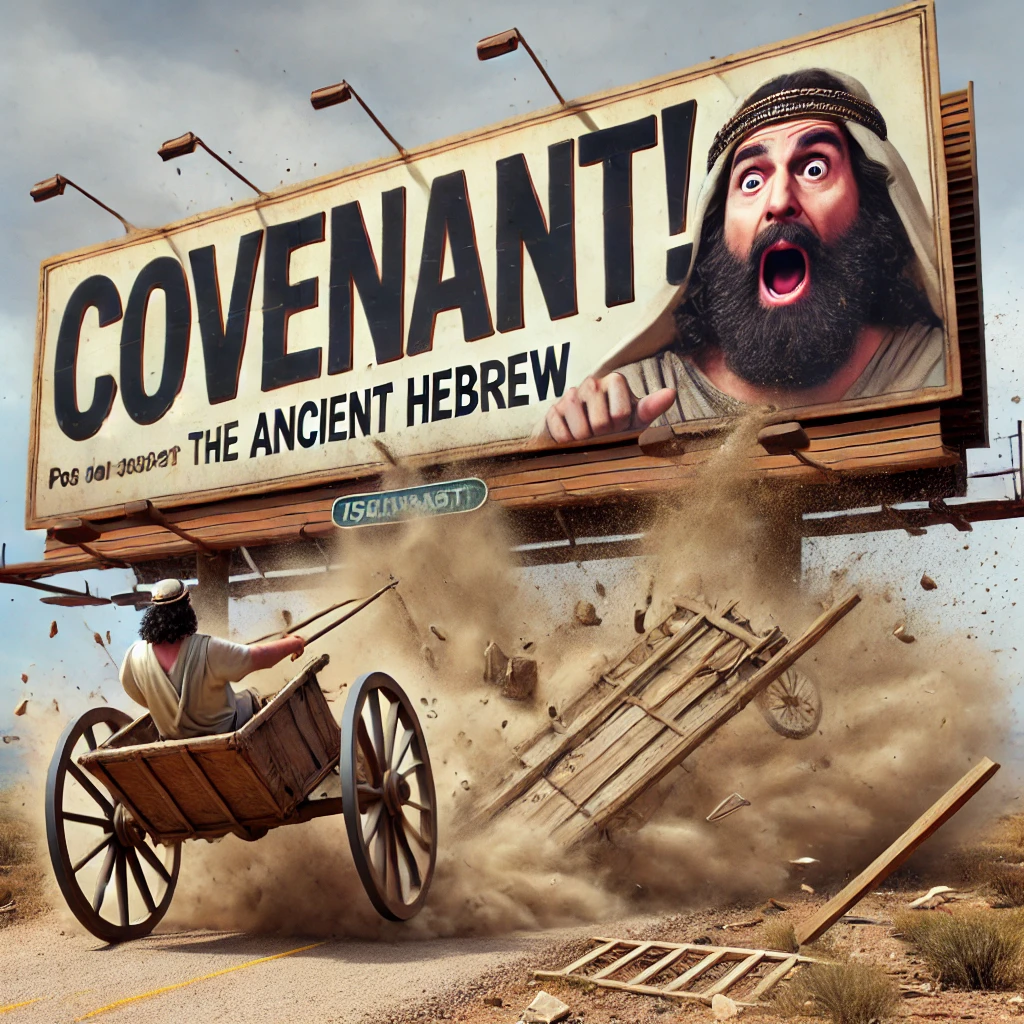Since we live in a contractual world, not a covenantal world, a crash course in biblical era covenant cutting is in order. Now, don’t get me wrong, we still have the tattered remnants of covenant-making in our modern western societies, but it mostly resembles the scattered debris of an ancient house, twice sacked, burned and buried beneath heaps of indifference. We have the old courtroom oaths, “I swear to tell the truth the whole truth and nothing but the truth so help me God.” Do we even use that anymore? Once upon a time in my youth we still laid our hands on the Bible while reciting the oath.
When my wife came into the country to marry me, she and I both swore such an oath concerning our statements in the documents we filed. The guy charging the oath kind of scared us. Before our bottoms had even fully settled into our chairs in front of his desk, he flew to his feet with his hand in the air (a little like an excitable teen Nazi who is just thrilled to have been invited to the goose stepping captain’s practice) and recited the oath we were to take so fast that we were a little uncertain whether we had just promised to be good citizens and immigrants or to give him our first child.
These tattered remains do not, however, make us a covenantal people, primarily because these oaths mean little to us in reality. We are not afraid. We say, “Cross my heart hope to die, stick a needle in my eye,” but never imagine that God will take us up on our offer. We swear on our mother’s graves, even if she is still alive and kicking, and readily sign agreements whose only threat is potential legal action by lawyers who seek to wield the power of the state. We never imagine that God will get us if we renege. Thus, we are contractual, not covenantal.
We get baptized easily and take communion without much thought or fear. When I see a parent giving their squirming squawking toddler bread and juice from the communion plate because the kid is convinced in his infant mind that snack time has finally arrived, then I know that we are not covenantal people. Paul attached the careless partaking from the Lord’s table with sickness and early death among some, and we use it without fear to quiet the culinary demands of babies lest they embarrass us in church.
So, here is the essence of covenant—fear, threat, death.
You live in a world where self-defense is the only defense, where family bond is your greatest weapon against extinction and you learn through ages of “the way of things” that people whom you don’t know intimately cannot be trusted. In this world, you make choices about how to relate to outsiders, to people that are not family. Prosperity and growth as a society demands interaction, but dangers unseen swim in those waters… so, what do you do?
You play upon a common fear—the gods. You can only see what happens before your eyes, but the eyes of the gods are just about all seeing. They see you when you are sleeping, they know when you’re awake, they know if you’ve been bad or good… so, be good, for goodness sake.
You develop the notion of oaths and covenant in which people whose trustworthiness is questionable, and isn’t everyone’s, validate their trustworthiness by putting their heads on the divine chopping block and inviting the gods, who see, to judge cruelly if they prove untrustworthy. They say in either words or actions, “If I do not keep my word in this covenant, may my eyes be plucked out by ravens, may my tongue cleave to the roof of my mouth, may I be split asunder and have my bowels scattered to be food for the beasts of the earth.”
And what is the power of such a covenant, such a statement? The power is belief. Both of the parties in the covenant believe that this will happen. The one who requires the covenant fears the gods and believes that the one swearing allegiance to him fears the gods, that he will keep his word for fear, and that the gods will indeed make him pay with his life if he violates the terms of the covenant.
Covenants invoke both blessings and curses upon those bound by the covenant. If the one proves faithful to his word, then the gods are called upon by the covenant maker to bless the covenant swearer. If the one proves unfaithful to his word, then the gods are called upon to destroy the covenant swearer.
Even when we don’t perceive death threats in the making of covenants, those threats are there. Eating and drinking, the application of lotions and oils, the circumcision of the male organ, walking between the parts of slaughtered animals, partaking in sacrificial offerings through the smearing of its blood or the wearing of its parts (horns, skins, teeth, etc), all have associations, sometimes distant, to the idea of curse. “If I am not true to my word, may I be made like these beasts, torn asunder and scattered.” “If I am not true to my word, may the curses of this covenant enter into my inmost being like this oil, like this wine, like this meat.”
The essence of covenant is the invitation of divine cursing made through symbolic acts of death when making promises to another. Think about that the next time the communion plate passes by your kids.
Discover more from Biblical Literacy with Dr. Andrew D. Sargent
Subscribe to get the latest posts sent to your email.


